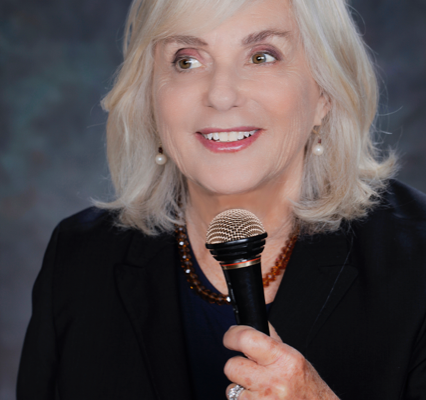Dr. Relly Nadler: Welcome to Leadership Development News, Profiles and Practices of Top Performers. I’m Dr. Relly Nadler. Dr. Cathy Greenberg and I have been doing this now for 16 years. So just a couple of words before we bring in our guest today.
With Covid and Omicron, we all have these heightened emotions. Some of the research is saying that 47% of people are experiencing anxiety, 44% are sad, 39% of us are angry, and 75% of us all wish we could get more emotional support. As leaders, people are looking to you for emotional support.
One of the things that we see now; all is more. We have more complexity. We have more unknown. We have more emotions. With this the tsunami of emotions for you and the people you are dealing with are flooding. These demands for you as a leader to be or to have emotional support—the pressures far outreach your past experiences and possibly your training.
The leader using a coach approach is needed these days more than ever for all this emotional support for the people that you lead.
More empathy is important for people development and for retention and productivity.
In a new study that I found from Catalyst; Why is Empathy Important? Think about this for yourself. If you are low in empathy, you have about an 18% influence over innovation and about a 32% influence over engagement. But, if you have high empathy, you have a 41% influence over innovation and then get this, around engagement, if you have high empathy with everything that is going on—all is more now—78% more influence over engagement, which we all want from our people.
Those are some of the key things going on today and part of the purpose of Leadership Development News is to give you some tips about how you get into that sweet spot. What is the sweet spot? That’s where emotional brilliance is—in the moment, what do you do? In the moment, what do you say? In the moment, how do you react to everything swirling around you? The more that you can be your best in the moment, really is what we call emotional brilliance.
Today, let me introduce Dr. Lois Phillips. We are going to talk about Women’s Equality Day, which actually is coming up at the end of this week, if you are listening to this live, August 26th.
Lois is a former University Administrator and then a strategic planning consultant to organizations across different sectors. A communication consultant who studied gender differences, we’ll get into that, and speaking and leading.
Lois just published The History of Women Speakers: When Women Spoke Up They Changed History. And co-authored two books with Dr. Anita Perez Ferguson, Women Seen, and Women Heard.
We’ve had Lois on the show some years ago and we think especially with Women’s Equality Day coming up, it was great to invite her back.
Her experience in strategic planning and facilitation allows her to think broadly about social trends and their impact on the corporate culture. The role of the leadership team is messaging about corporate values as the organization grows and evolves.
We all know as leaders, this communication and how you communicate, the way you communicate, is so valuable and Lois is an expert on this. She’s a community leader and has won awards for her work in affirmative action and diversity and has op-ed columns published in current issues such as the economy, the media, and women in politics.
You can find her podcast and her blog, interview, and her speeches, a lot of resources, and links to her book, on www.loisphillips.com.
So, Lois, welcome to the show.
 Dr. Lois Phillips: Thank you so much Relly. I’ve very excited about talking with you particularly around Women Equality Day coming up on August 26th.
Dr. Lois Phillips: Thank you so much Relly. I’ve very excited about talking with you particularly around Women Equality Day coming up on August 26th.
Dr. Relly Nadler: Okay, good. So, for people, and I know when you and I met we talked a little bit about that and thought this would be great timing for Women’s Equality Day, maybe share a little bit about what it is and maybe the value and any of the history that you can inform us about.
Dr. Lois Phillips: Sure. Well, let’s take a look backward for a minute and you and I and anyone working in organizational life know how hard it is to get anything done and to find consensus. But Congresswoman Bella Abzug who was a Democrat of New York in 1971, proposed that US Congress designate August 26th as Women’s Equality Day. It took two years, but it finally was approved and the date was selected to commemorate the 1920 certification of the 19th Amendment to the Constitution. So here we are 102 years later, granting women the right to vote.
I think it’s really important to talk about women’s equality when we think about women advancing in the workplace across sectors and what organizations can do to ensure that women and men have a level playing field.
I wanted to mention, just to start us off, some of the interesting statistics so we get a perspective on what we are about to talk about, which is organizational life today.
We have 3.43 million more women than men in this country, using a conventional term. Or over 50%. 50% of the population in this country are women. But we have only 28% of women in the House of Representatives and only 24% of the Senate are women. We have 42 African American women in the House.
So, we really don’t have equality when it comes to government. I think that, I just want to mention before we go forward, we saw with the Supreme Court nominations and the processes of the government, the Senate in particular, introduce candidates for the Supreme Court. So it ends up with who we vote for in terms of our congressional representatives. It’s very important that women get out and vote. I think this mid-term election in which every representative has to be reelected or some newbies—there are many that retired. I think 50 congressional people retired given the difficulty of being in Congress.
We have a very dynamic moment here for women to step up and decide the future of the country. I just want to say, get out there and vote, is my first pitch.
Dr. Relly Nadler: Yep. Well, I agree. This is such a critical time, and it can be easy to be apathetic but the issues, especially with Roe vs Wade, and everything else we are going to be talking about, today is so critical. We kind of notice what happened in Kansas when women really took the vote, especially around Roe vs Wade.
Dr. Lois Phillips: Exactly, and I just wanted to say related to that, that when you use the word, you know it’s easy to be apathetic, I think it’s also easy to be overwhelmed. I know we are going to talk about Covid and the consequences of Covid for people who work and who are juggling many roles, it’s just hard enough to do the basic work/family roles and to find balance and maybe sanity, and then one more thing, there is. Civic engagement becomes a burden on top of everything else that we are dealing with, with all of the uncertainty.
You can listen to the complete interview above by clicking on the play button.

